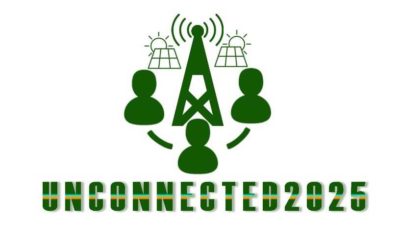Mr. Wale Odumala, Key Account Manager of Cells Station Limited, a telecommunication and infrastructure procurement firm in Lagos talked to Anthony Nwosu, It Edge News, on how IT managed services are not being appreciated by Nigerian firms.
What are the unique solutions that your company is offering in Nigerian?
Let me start by saying Cells Station Services Ltd helps our clients meet the increasing demand for immediate IT response. We go further to support our clients’ staff members by helping them to focus on their specialization skills, so that the company can devote more of their precious time on research and development of their businesses. In this way, the pressure and stress become more manageable for them. We achieve these by our ICT and System Management boutique with tailored-made solution for all called “IT Managed Services” under which we presently have two solutions: On Call Managed Services (OCMS) and In Plant Manage Service (IPMS). At Cell Station, we understand that some businesses require dedicated 24×7 supports with committed response time that must be consistently met by external service providers. Our OCMS is an affordable and premium solution. We do not have a physical presence in the client’s office, except there is an escalation of system challenges from client, staff or from our in-house monitoring team. We quickly, rapidly and urgently deploy qualified, certified and appropriate engineers to the site and fix the problem based on preferred tier of service which could be called OCMS- GOLD, OCMS- SILVER or OCMS- BRONZE. On the other hand, IPMS Solution is our premium IT Service whereby we station one or more of our qualified and certified system engineers to manage the client’s computer rooms and all IT equipment on site. It is a proactive way to avoid downtime, as our engineers can quickly request for backup when there is system failure and they can be supported by legions of standby second and third level service engineers. Our ICT/Telecoms Training is another powerful initiative of Cells Station Services Ltd under the umbrella of Cells Station Training Academy. It is one of Cells Station’s ways of giving back to the community by adding strong values to the growth of our youths. Cells Station training is tailor-made both for individuals and corporate entities. Our courses are based on hands-on practical in our well-equipped class rooms and technical laboratory.
In terms of content delivery and human capacity, how are you handling that?
Well, let me quickly tell you that our IMS technical staff comprises persons who are Microsoft certified (MCSE, MCP, MCDP) Cisco certified (CCNA, CCNP) while for the telecom trainings, our facilitators are experienced and certified by various OEMs to carry our installations on their equipment. Most especially on the IMS account, each client is attached with a trained executive account manager whose KPI is measured in terms of performance with the attached client. The executive account manager has access to pool of committed and industry certified engineers and these engineers’ KPIs are determined by their account managers. Since the implementation of this structure, we have achieved tremendous success in our service delivery and human capacity.
What are the factors militating against multinationals believing in your capacity to handle some projects?
Funding, because most projects are rolled out on zero mobilization. Even some work orders which indicate that certain percentage mobilization will be paid ultimately won’t be so in reality. These so called multinationals in the telecoms industry expect you to tie down your funds for a very long period and keep pushing projects to you. Those among us who have access to huge capital which they can afford to tie down for such a long period are getting the projects while the smaller ones are advised to prospect projects from these ones that have the huge capital. For us, technical capacity is not the factor. The truth is once the capital is there, the needed technical capacity will surface systematically. Likewise access is not a factor for us at Cells Station because our principal officials have been around since the inception of GSM business in Nigeria and those who hold key positions in these multinationals are colleagues. We usually say that the industry is a small one because at one point or the other we meet ourselves. So my conclusion is funding.
How can you make sure that firms believe in your data restoration services and what sets you apart?
First, we identify the main issues facing data centre and its management. We noticed that maintenance cost, the environmental impact of the data centre, ensuring 99.9% up time and SLA compliance are key issues facing data centres and these challenges are easy to measure but not easy to manage. At Cells Station, we have our plans on how to mitigate these measurable challenges and those ones that are hard to quantify. These can be divided into three: planning, contract agreement with a customer-centric OEM, and lastly full implementation of data centre infrastructure management (DCIM). This concept is a way of integrating all aspects of the data centre: the people, processes, IT assets and facility assets. Solution like data center collocating with clouding solution can also be implemented by taking off heavy loads from companies that need data centre. All these however, are capital intensive projects which are part of our projection as the years unfold.
What is the level of acceptability of your solutions?
Frankly speaking it is very slow, especially to convince the SMEs to explore the IMS solution. Most small companies use the “break/fix model” management that is when technology fails, a consultant (a friend, relative or a guy from computer village) is called in to fix the problem and the company pays a fee for the service. In due course, this method results in repeated downtime and lost productivity. The problem with this model is that consultants are not motivated to keep the client’s network and systems running efficiently because the consultant makes more money when the technology breaks down. I urge the SMEs to consider the IMS solution for several reasons, including affordable solutions to the complex technology problems for a fixed monthly fee. Technology experts are fully focused on keeping the systems of the company up and running because repeated technology failures means higher costs to them. Therefore, the managed services model is beneficial to both the client and the technology expert because small businesses have the advantage of lower rates and better services while technology experts get the fixed monthly fee from multiple customers. IMS also provide SMEs with access to a wide array of tools that are normally assets of larger organizations only. Our ICT/Telecoms training is in its early stage. We just completed two class sessions last week and we shall be rolling out this year’s training calendar soonest. We believe this is promising.
What is the worst decision that you have made in managing your firm and what are your projections?
Not diversifying on time! By 2016, we would already have achieved great results from the efforts we have put in running Cells Station Services. And that’s because we are tenacious, focused and forward looking.
“Funding [is a problem] because most projects are rolled out on zero mobilization. Even some work orders which indicate that certain percentage mobilization will be paid ultimately won’t be so in reality.”































